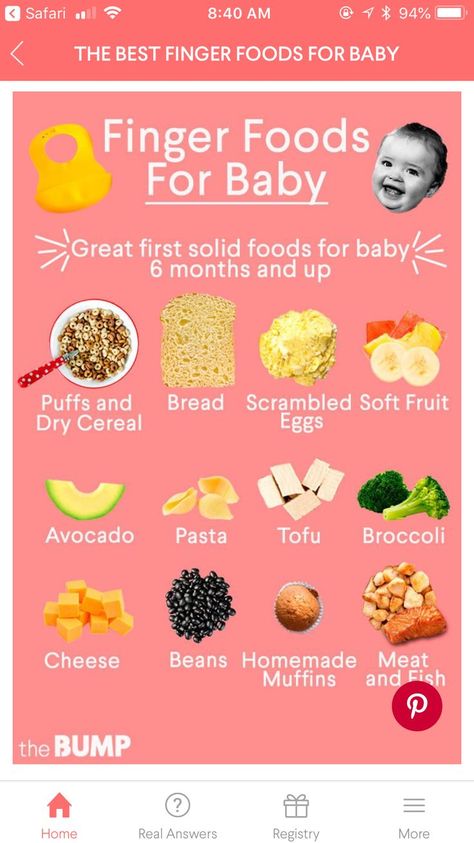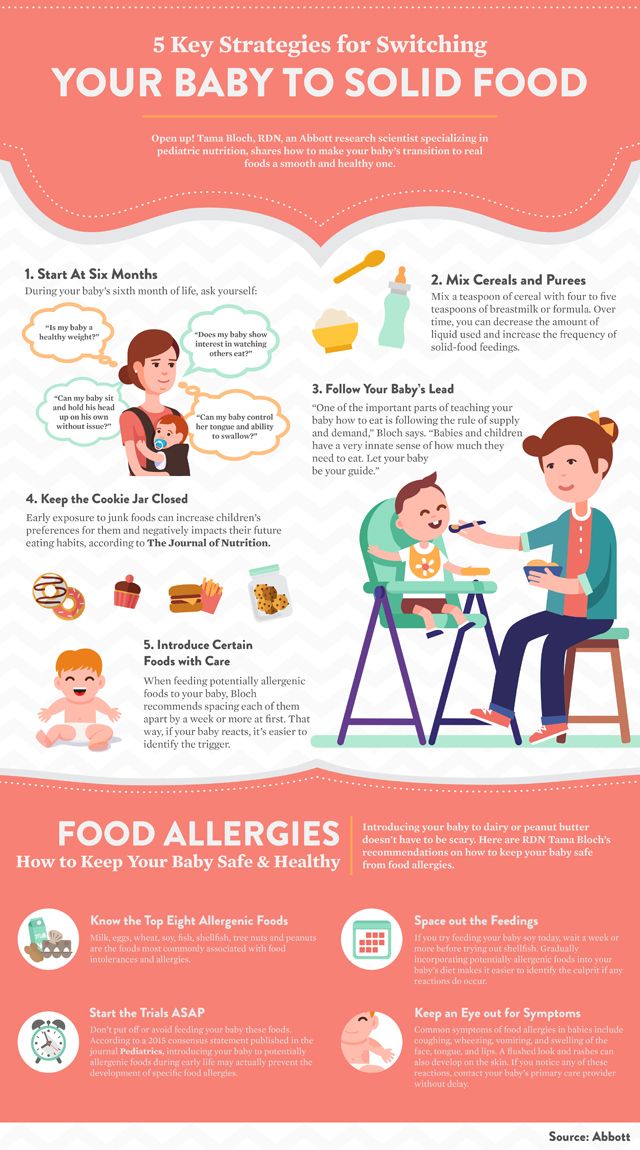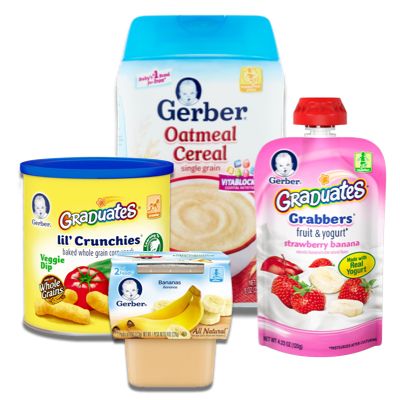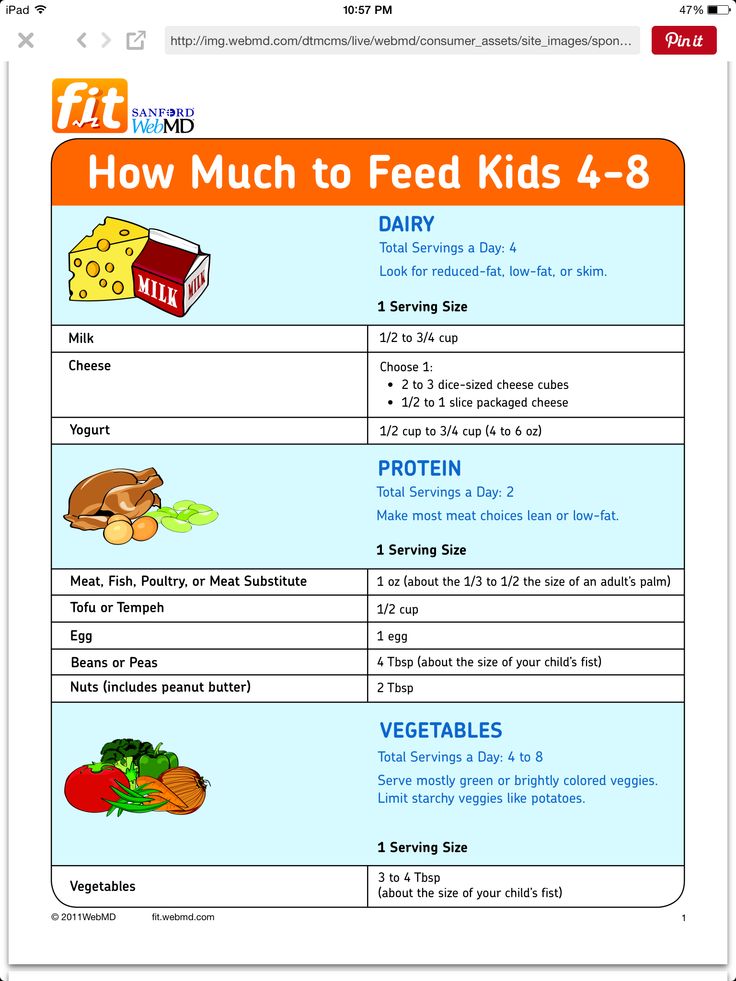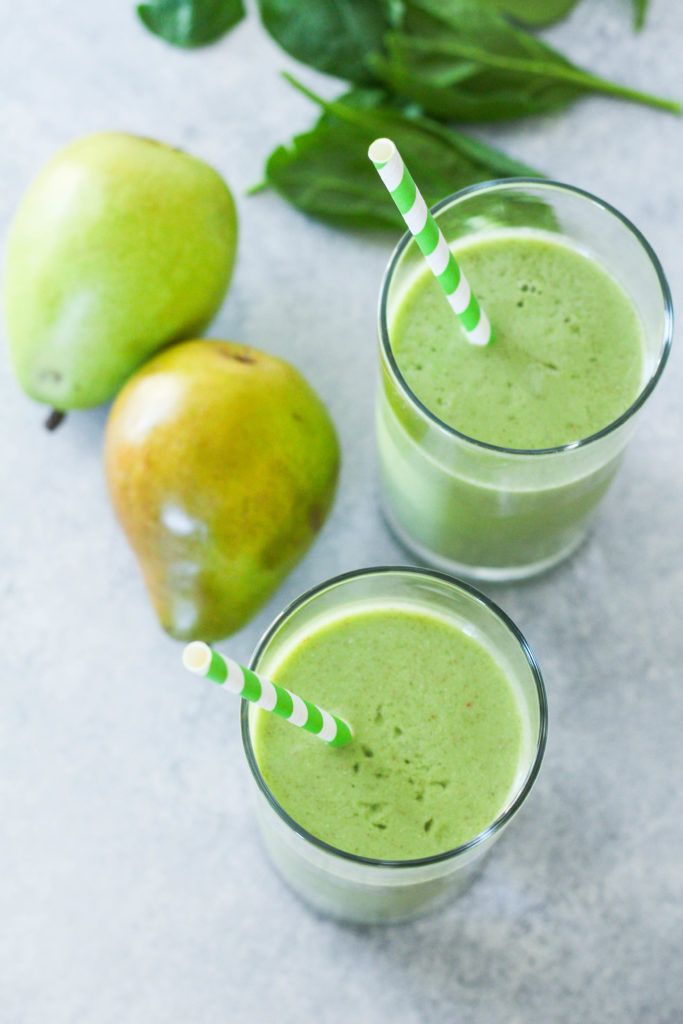Can babies have coconut milk in food
Is It a Good Idea?
Coconuts are all the rage these days.
Celebrities are investing in coconut water, and all of your yoga friends are drinking it after Savasana. Coconut oil has gone from junk food pariah to a “superfood” in a few short years. Nutritionists now tout it as an amazing health food that can help you burn fat.
And coconut milk — that silky indulgence that makes your Thai curries so irresistible — is suddenly also a paleo staple.
But is it good for your baby?
Well, it depends. Using coconut milk in place of breast milk or formula is a no-go. Studies suggest that even cow’s milk on its own can lead to iron deficiencies and severe dehydration in babies. Coconut milk definitely doesn’t do the trick. There’s simply no substitute for the complete nutrition babies get from breast milk or infant formula.
Some would say there’s no substitute for breast milk, period, given its unparalleled immunity protection, allergy resistance, and a slew of lifelong health benefits for both mother and child.
If breastfeeding isn’t an option and you’re using a milk-based formula, watch out for symptoms of a dairy (or milk protein) allergy or intolerance in your baby. Symptoms of a dairy allergy or intolerance may include:
- skin rashes
- diarrhea
- vomiting
- stomach cramps
- difficulty breathing
- blood in stool
If your baby’s having trouble with dairy, your doctor may recommend a soy-based formula. If your baby’s allergic to soy, too, you can also find elemental formulas that are hypoallergenic.
In any case, your pediatrician will not point you to coconut milk as an alternative.
What about coconut milk for kids who have passed their first birthday? Could it take the place of cow’s milk in their lunchboxes?
Giving kids too much canned coconut milk can be dangerous. Canned coconut milk is wildly high in saturated fat. One cup of the liquid has 57 grams of fat and 255 percent of your daily allowance of saturated fat. That’s more than 10 times the saturated fat content of full-fat cow’s milk, which has 8 grams of fat total. While saturated fats found in plants differ somewhat than animal-based saturated fats, it’s still a good idea to keep saturated fat intake to a minimum.
That’s more than 10 times the saturated fat content of full-fat cow’s milk, which has 8 grams of fat total. While saturated fats found in plants differ somewhat than animal-based saturated fats, it’s still a good idea to keep saturated fat intake to a minimum.
Commercial brands of coconut milk beverages are diluted with water and contain far less fat than the canned variety. In terms of fat content, they’re more in line with low-fat cow’s milk. But they can also contain sweeteners and thickeners, like guar gum or carrageenan, which parents might want to avoid. The good news is that they’re fortified with nutrients like B12, iron, calcium, and vitamin D.
You can make your own coconut milk with grated coconut. But your homemade coconut milk wouldn’t be fortified with some of the vitamins and minerals you find in the boxed drink.
If you’re looking for an alternative to dairy, experts may recommend the nutritional offerings of soy over coconut milk (providing you don’t have a soy allergy).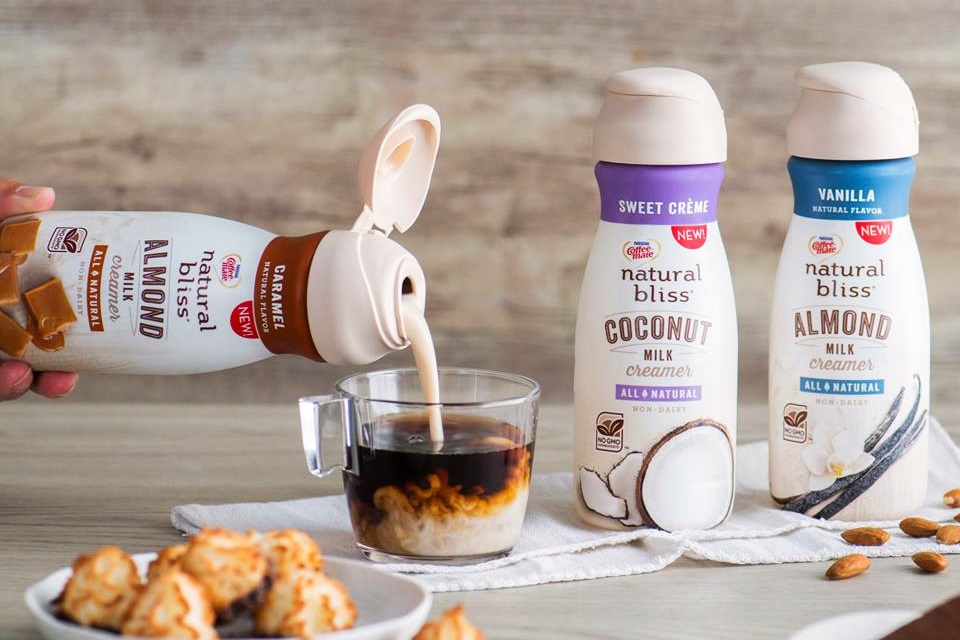 Other options include flax milk with added protein, or hemp milk. Unsweetened versions are always the best.
Other options include flax milk with added protein, or hemp milk. Unsweetened versions are always the best.
Coconut milk does get some credit for its high content of lauric acid, a fatty acid also found in breast milk (though in completely different proportions). Lauric acid helps protect against infections and bacteria. Your body also burns it faster than other fatty acids.
Coconut milk is also a good source of niacin, iron, and copper. If your older kids like coconut milk or coconut water, it’s fine to let them have it. But be aware that the canned and cold beverage versions of coconut milk don’t contain protein. They’re not equal replacements for dairy milk, which contains 8 grams of protein per cup.
If you’re turning to coconut beverages because your child’s allergic to cow’s milk, soy, or other nut milks, beware. Coconut is also a potential allergen, though the allergy isn’t nearly as common.
Despite its FDA classification as a tree nut, it’s technically a fruit in the cherry family, so your nut-allergic kid might not have a reaction to it.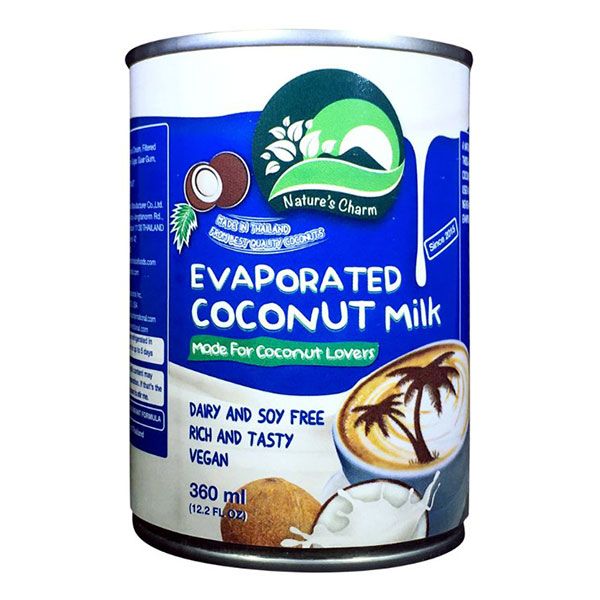
Cooking with coconut milk is also fine — delicious, even! Once your child is eating solid foods, they’ll probably enjoy some sweet, mild coconut curry or a tropical coconut smoothie.
Right Age, Benefits And Precautions
It is nutrient-dense and supports immunity but may be avoided due to certain limitations.
Research-backed
MomJunction believes in providing reliable, research-backed information to you. As per our strong editorial policy requirements, we base our health articles on references (citations) taken from authority sites, international journals, and research studies. However, if you find any incongruencies, feel free to write to us.
Image: Shutterstock
Many parents have been exploring the nutritional benefits of coconut milk for babies since it is a popular plant-based milk alternative.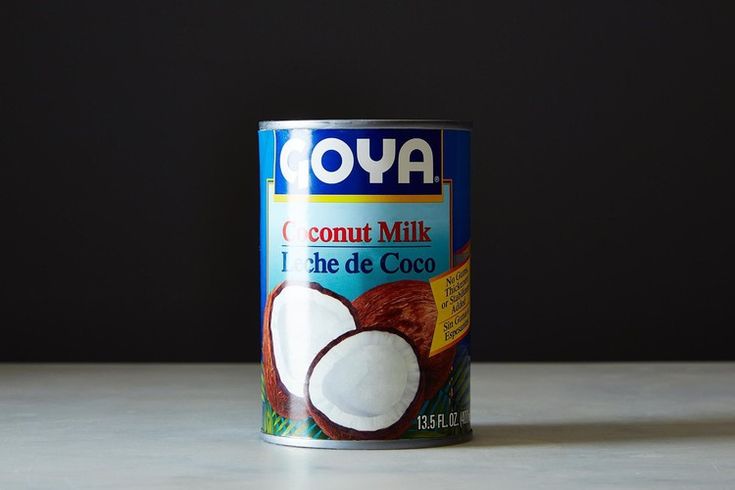 Of course, substituting coconut milk for breast milk or infant formula is a no-go. However, you may add a little coconut milk to the weaning baby’s or toddler’s diet.
Of course, substituting coconut milk for breast milk or infant formula is a no-go. However, you may add a little coconut milk to the weaning baby’s or toddler’s diet.
Coconut milk is obtained from mature coconut pulp. Its peculiar taste and creamy texture make it a common choice in savory and sweet recipes. Although it cannot substitute breastmilk, it has nutritional and therapeutic properties. Therefore, it is best to opt for fresh coconut milk prepared at home than canned coconut milk.
Read on to know the benefits of coconut milk and some interesting recipes with coconut milk for babies and toddlers.
When Can You Introduce Coconut Milk To Your Infant?
Babies older than 12 months may have calcium-fortified coconut milk as the main drink (1). If you wish to introduce coconut milk sooner, adding it to the baby’s weaning food is suitable (2). You could try coconut milk-based cheese, yogurt and desserts for babies older than six months occasionally (3). In any case, consult a pediatrician before giving coconut milk to the baby.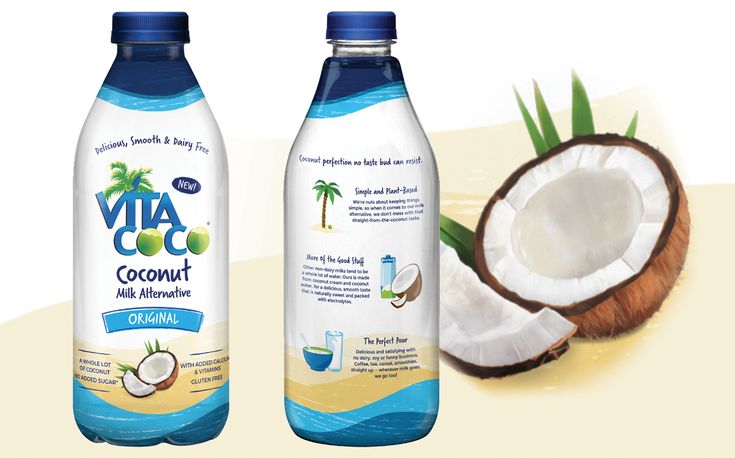
Related: Top 10 Healthy Baby Weaning Foods And How To Start Them
Nutritional Value Of Coconut Milk
The nutritional composition and qualities of coconut milk vary depending on the quality of coconut pulp. Coconut milk sold as a dairy alternative, that is, a milk substitute, is fortified with nutrients, such as calcium and vitamin D.
One fluid ounce (30.5g) of coconut milk fortified with calcium, vitamins A, B12, and D offers the following nutrients (4) (5).
| Nutrients | Amount | RDA (12-36months) |
|---|---|---|
| Water | 28.8g | – |
| Energy | 9.46kcal | – |
| Protein | 0.064g | – |
| Total lipid (fat) | 0.634g | – |
| Carbohydrate, by difference | 0.891g | – |
| Calcium, Ca | 57.3mg | 500mg |
| Potassium, K | 5.8mg | 1000mg |
| Sodium, Na | 5.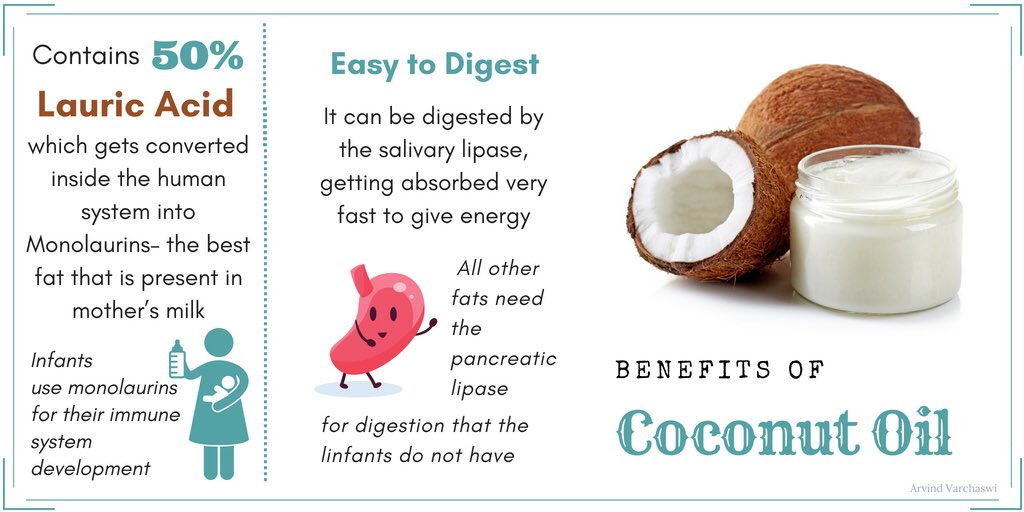 8mg 8mg | 225mg |
| Vitamin A | 63µg | 400µg |
| Vitamin B12 | 0.63µg | 0.7µg |
| Vitamin D | 1µg | 10µg |
Sources: US Department of Agriculture and World Health Organization
Coconut milk is often considered an alternative for lactose intolerant babies. However, whether to use coconut milk for a baby is a decision you need to make with a pediatrician. Some other dairy alternatives are soy milk, rice milk, oats milk, almond milk, and hemp milk.
Related: When Babies Can Have Soy Milk, And Myths About Soy Formula
Possible Health Benefits Of Coconut Milk For Babies
Coconut milk has nutritional elements, such as medium-chain triglycerides and bioactive compounds that could benefit health over time (6) (7). Below are some notable benefits of coconut milk that a baby may reap.
- Offers nutrients: Coconut milk is calorie-rich, has high amounts of saturated fat and minerals (8).
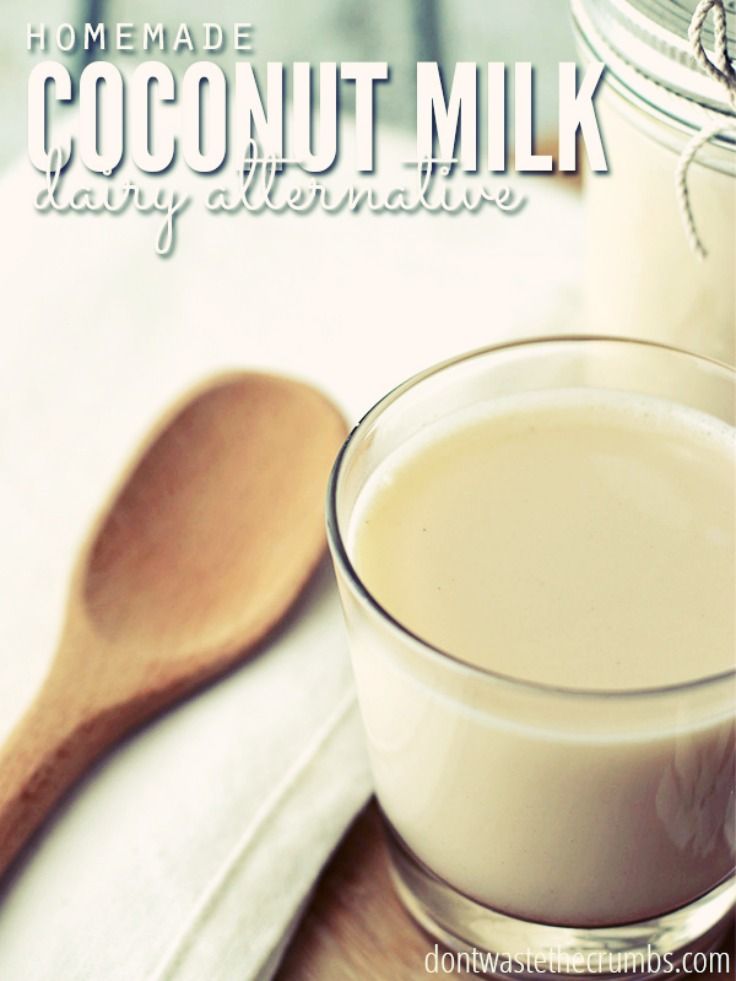 This nutritional profile could make it a good choice for babies who need these nutrients to maintain their rapid growth and development.
This nutritional profile could make it a good choice for babies who need these nutrients to maintain their rapid growth and development.
- Improves digestion: Coconut milk is considered to improve digestion and alleviate constipation through its high water content and bioactive compounds (9). However, clinical evidence to support this theory is limited.
- Strengthens immunity: The nutritional components of coconut milk could stimulate the immune system (10). Also, it contains bioactive compounds possessing antioxidant properties. The medium-chain triglycerides (MCTs), such as lauric acid, present in coconut milk, may help fight infections and illnesses (11).
- Supports brain development: Research shows that coconut milk contains considerable amounts of saturated fatty acid (10). These fatty acids may support the baby’s healthy brain development in the long run.

Besides these, coconut milk may also reduce inflammation and promote heart health over time.
Related: Signs Of Bacterial Infections, Causes, Diagnosis, & Treatment
Possible Side Effects Of Coconut Milk For Babies
Although coconut milk offers certain benefits, its use among babies is not promoted. One cup of coconut milk offers 0.51g of protein, which is significantly lower protein than whole cow milk, which contains 7.69g of protein (12). Also, coconut milk is high in saturated fat, which may fill your baby’s little tummy and suppress their appetite for breast milk or formula milk, and other foods. It will be a good idea to keep saturated fat intake to a minimum.
Commercial coconut milk, usually sold as a milk substitute, is often diluted and may contain artificial sweeteners and thickeners (10). These compounds may not be good for the baby’s health, and parents might want to avoid. Coconut is also a potential allergen though the allergy is not as common.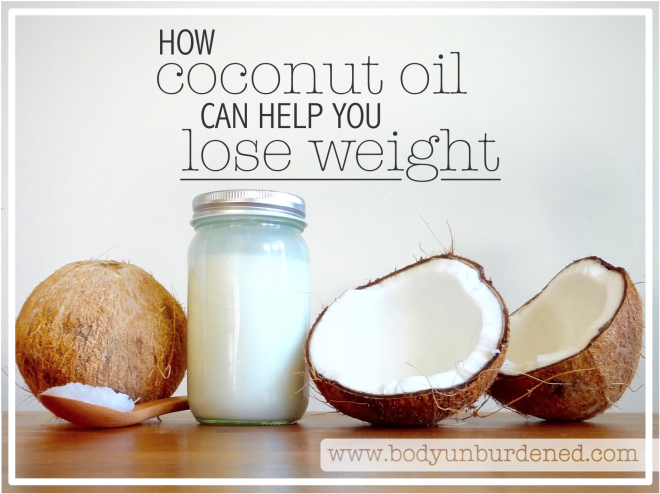
Note: If you wish to use coconut milk for cooking, use canned coconut milk specifically made for cooking purposes.
Precautions To Take While Using Coconut Milk For Babies
Here are some precautions to observe while using coconut milk for babies.
- Prefer to buy packaged coconut milk from a reputable and trusted brand. Look for no-sugar options fortified with essential nutrients, such as calcium and vitamin D.
Point to consider
Look for BPA-free labels on cans or plastic containers of commercial coconut milk.
- Introduce coconut milk as a part of other foods, such as mash, puree, or porridge. Keep the intake occasional as its protein and calcium content is not enough. Being rich in calories and fats, it can keep your baby full for longer and suppress its appetite.
- Begin by feeding a teaspoon of coconut milk as a part of food preparation and gradually increase the intake to a tablespoon and then to two.
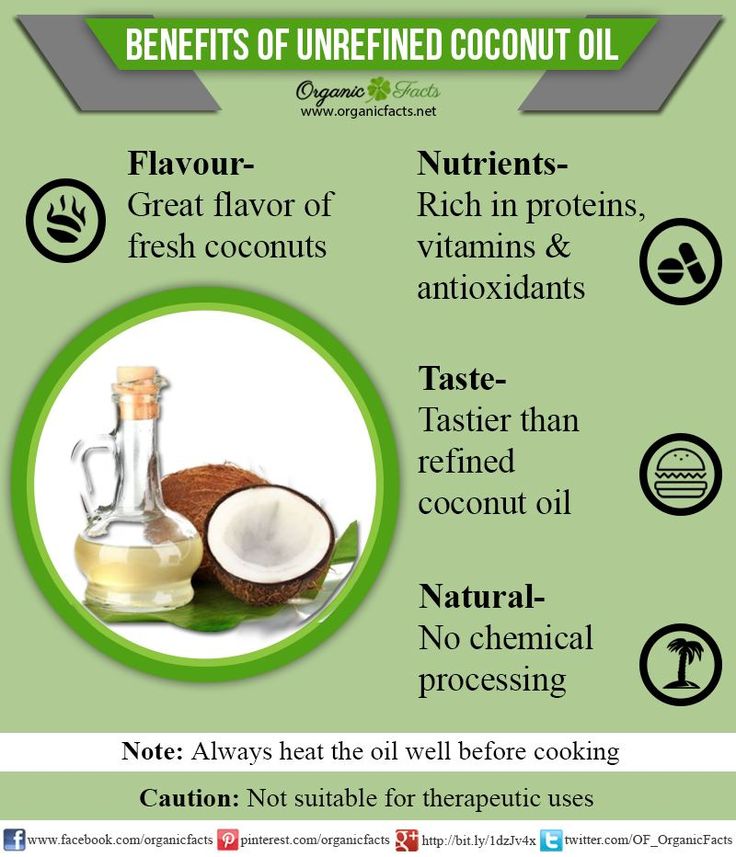
- After ingesting coconut milk, if the baby experiences discomfort or shows signs of sensitivity or intolerance, discontinue feeding, and try later.
- Allergy after eating coconut is rare, but the allergic reaction after touching coconut, called contact dermatitis, is relatively common (13). If the baby has an existing dermatitis condition or a family history of skin allergies, consult a doctor before introducing coconut milk.
- Cross-reactivity of coconut with walnut and hazelnut has been reported. Most individuals with a tree nut allergy can eat coconut and its products (14). Nevertheless, if your baby has nut or other food allergies, consult a doctor before introducing coconut milk.
- Serve coconut milk as a drink to toddlers occasionally. Plain coconut milk, coconut milkshake, and coconut milk smoothie are some options to try.
- Keep the intake of coconut milk occasional, even for older toddlers.
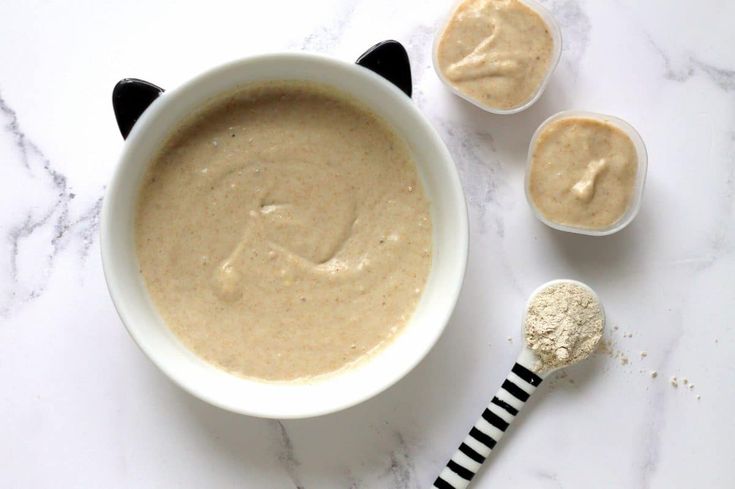 Toddlers older than two years should consume low-fat foods for effective weight management and optimum heart health (15).
Toddlers older than two years should consume low-fat foods for effective weight management and optimum heart health (15).
Quick tip
Coconut milk goes well with fish and meats and enhances their flavor.
Healthy Coconut Milk Recipes For Babies And Toddlers
Below are some easy-to-prepare, healthy coconut milk recipes that can enhance the nutritional value of your baby’s diet.
1. Coconut milk puree (6 months+)
Image: Shutterstock
You will need:
- ¼ cup mango puree
- ¼ banana puree
- ½tsp dry fruit powder
- 2tbsp coconut milk
How to prepare:
- Mix all the ingredients in a mixing bowl thoroughly. Ensure no lumps are present.
- Transfer some amount in a feeding bowl and feed the baby. Store the remaining amount in an airtight container in the refrigerator for no more than two days.
2. Creamy lentil veggie curry (8 months+)
Image: Shutterstock
You will need:
- 50g red lentil (cooked)
- ½ cup corn kernels
- ½ carrot (peeled and finely chopped)
- ½ capsicum (finely chopped)
- 1 small onion(finely chopped)
- ½ cup coconut milk
- 1½ cup water
- 2tbsp olive oil
How to prepare:
- Heat the oil in a frying pan over low heat.
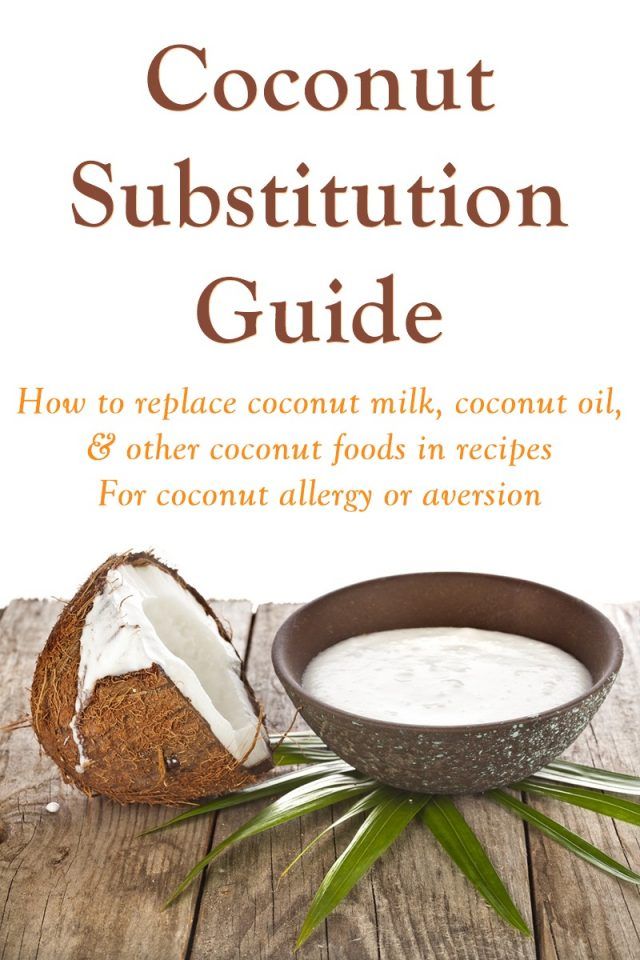 Add onions and fry them until they turn golden brown.
Add onions and fry them until they turn golden brown. - Stir in the lentil, corn kernels, carrot, and capsicum. Cook for five minutes until the veggies turn soft.
- Add water and coconut milk to the mixture and bring to boil over medium heat.
- Lower the flame, cover the pan and simmer the mixture for 15 to 20 minutes.
- When the lentils are soft, turn off the heat and set the pan aside to cool. The curry is ready.
- Mash or blend to appropriate texture before feeding it to the baby.
Quick tip
Adding a tablespoon of fresh tomato puree can impart a tangy flavor to the dish.
3. Sago and coconut milk porridge (10 months+)
Image: Shutterstock
You will need:
- ¼ cup sago (washed, drained, and soaked)
- 1 cup coconut milk
- 1cup water
- 1tsp dry fruit powder
- ⅛ tsp cardamom powder
How to prepare:
- Boil coconut milk and water mix in a saucepan over low heat.
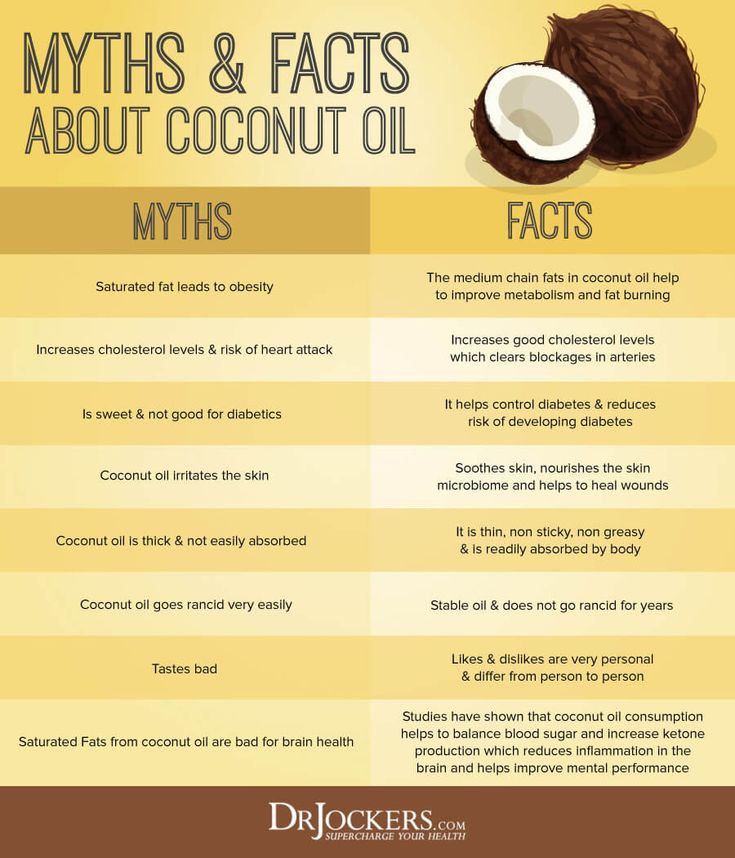
- Add cardamom powder, dry fruit powder, and sago. Cook for seven to eight minutes while stirring occasionally. Ensure no lumps are present.
- As the milk boils, it will thicken. Add more water to adjust the porridge’s consistency.
- Once the mixture thickens as desired, turn off the flame, and set the porridge aside to cool. Pour some porridge into a feeding bowl and feed.
4. Banana and coconut milk smoothie (12 months+)
Image: Shutterstock
You will need:
- 1 cup coconut milk
- 1 mashed banana
- ½tsp jaggery
- 1tsp dry fruit powder
How to prepare:
- Blend all the ingredients into a smooth-flowing smoothie in a blender. Ensure no lumps are present.
- Pour the smoothie into a serving glass and serve.
- You can add more seasonal fruits, such as mango, peach, berries, and pineapple.
Quick tip
Coconut milk can be easily made at home by adding 4 cups of warm water to 2 cups of shredded fresh coconut and blending them.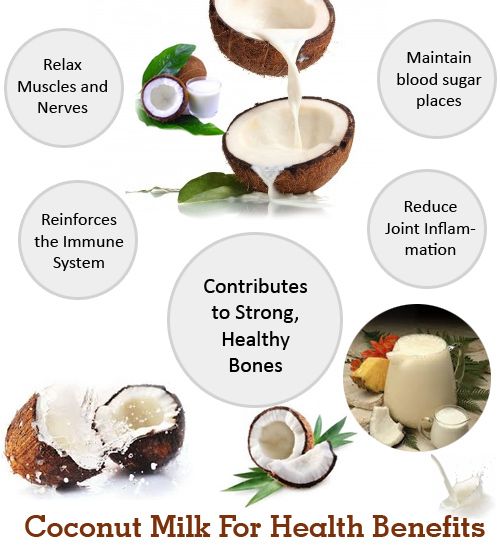 Strain the liquid through muslin cloth and store in the refrigerator.
Strain the liquid through muslin cloth and store in the refrigerator.
Coconut milk for babies is an energy-dense beverage that they can consume along with other weaning foods. Feeding coconut milk to babies under 12 months is strongly discouraged. However, toddlers can consume a cup of coconut milk as their main drink or as a part of other foods such as soups, curries, porridge, and cakes. But never replace whole cow’s milk or breast milk with coconut milk since it lacks certain essential nutrients that babies and toddlers need for proper growth and development. Instead, include coconut milk in moderation as a part of a balanced diet to enjoy its benefits.
Key Pointers
- Babies older than 6 months may occasionally consume coconut milk-based products.
- Coconut milk is nutritious and also available fortified with calcium and vitamins.
- Make sure you buy packaged coconut milk from a reputable and trusted brand and keep the intake occasional for babies.

- Check out coconut milk puree, creamy lentil veggie curry, and other recipes to enhance the nutritional value of your baby’s diet.
References:
MomJunction's articles are written after analyzing the research works of expert authors and institutions. Our references consist of resources established by authorities in their respective fields. You can learn more about the authenticity of the information we present in our editorial policy.
1. Milk free diet for babies; NHS
2. Milk free diet for babies; NHS
3. Cow’s Milk Free Diet for Infants and Children; NHS
4. Coconut milk, FDC ID: 1097553; Fooddata Central; USDA
5. Feeding and nutrition of infants and young children; WHO
6. Kokilavani et al.; Identification of Volatile Compound in Coconut Milk Samples Using GC-MS; International Journal Of Current Microbiology Applied Sciences
7. Asiri N. Karunasiri et al. ; Antioxidant and Nutritional Properties of Domestic and Commercial Coconut Milk Preparations; NCBI
; Antioxidant and Nutritional Properties of Domestic and Commercial Coconut Milk Preparations; NCBI
8. Victor Ephraim Edem et al.; Optimization of Coconut (Cocosnucifera) Milk Extraction Using Response Surface Methodology; International Journal of Nutrition and Food Sciences
9. The Benefits of Coconut Milk; Jamaica Hospital Medical Center
10. Elvira Verduci, et al.; Cow’s Milk Substitutes for Children: Nutritional Aspects of Milk from Different Mammalian Species, Special Formula and Plant-Based Beverages; NCBI
11. SaifAlyaqoubi et al.; Study of antioxidant activity and physicochemical properties of coconut milk (Patisantan) in Malaysia; Journal of Chemical and Pharmaceutical Research
12. Cow’s Milk Alternatives: Parent FAQs; AAP
13. Coconut Allergy; Australian Society Of Clinical Immunology And Allergy
14. Coconut Allergy; Anaphylaxis Campaign
15. Dietary fat and children; Medline Plus; US National Library Of Medicine
The following two tabs change content below.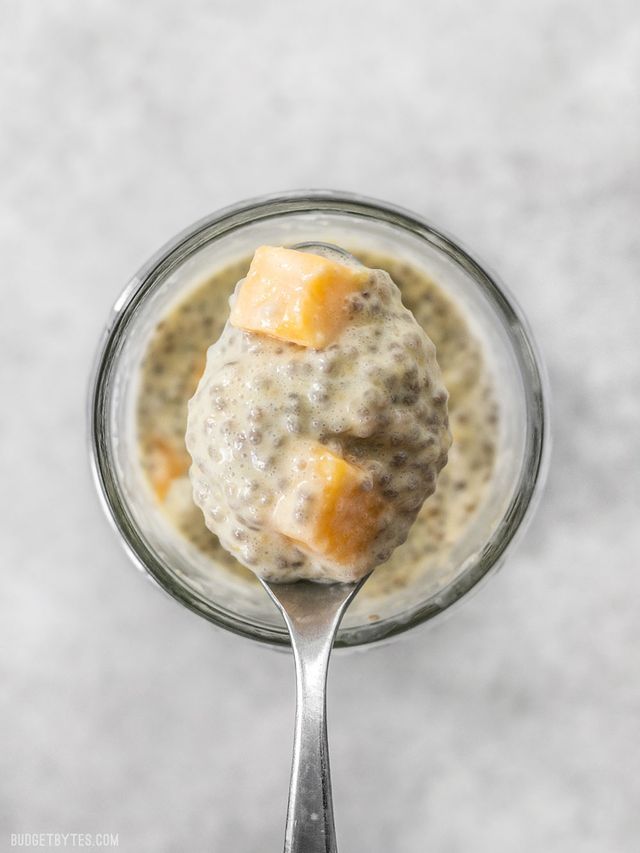
- Reviewer
- Author
13 Excellent Benefits Of Avocados During Pregnancy
13 Excellent Benefits Of Avocados During Pregnancy
5th Month Pregnancy Diet - Which Foods To Eat And Avoid?
5th Month Pregnancy Diet - Which Foods To Eat And Avoid?
Vitamin A In Pregnancy: Why Is It Important And What Are Its Vital Sources?
Vitamin A In Pregnancy: Why Is It Important And What Are Its Vital Sources?
Nuts For Babies: When To Introduce, Benefits, And Recipes
Nuts For Babies: When To Introduce, Benefits, And Recipes
Can Babies Have Cantaloupe? Benefits And Precautions To Take
Can Babies Have Cantaloupe? Benefits And Precautions To Take
Is It Safe To Eat Oysters During Pregnancy?
Is It Safe To Eat Oysters During Pregnancy?
Cheese During Pregnancy: What To Eat, What To Avoid
Cheese During Pregnancy: What To Eat, What To Avoid
How To Manage Protein Rich Foods Intake During Pregnancy?
How To Manage Protein Rich Foods Intake During Pregnancy?
Banana For Babies: Benefits, Precautions, & 6 Recipes to Try
Banana For Babies: Benefits, Precautions, & 6 Recipes to Try
Is it possible for children to have plant-based milk: from what age can they be given, the benefits of drinks made from natural ingredients
Contents
- Who can or should drink plant-based milk?
- How is plant-based milk produced?
- Is it possible or not?
- At what age can plant-based milk be given to children? nine0006
- What plant-based milk should I give my child?
- What to prepare from vegetable milk for a child?
- Which drinks are not suitable for children?
- Briefly about the main nine0021
- vitamins of category A, B, C, E;
- micro and macro elements - potassium, zinc, magnesium, calcium, selenium, iron;
- fructose;
- organic acids.

- Increases immunity in children of different ages, restores the body after illness or surgery.
- Has a positive effect on nerve cells, strengthens the central nervous system, protects against the negative effects of stress and improves mood. nine0006
- Effectively fights various infections and inflammatory processes.
- Stimulates the cardiovascular system, prevents blood clots.

- Improves the functioning of the digestive system, speeds up the digestion of food.
- Activates intestinal motility, cleansing the body of toxins and solving the problem of constipation.
- Improves cholesterol, sugar and hemoglobin levels.
- The use of an exotic product is an effective prevention of cancer. nine0006
- How long can you feed your baby with coconut and its milk - after 2-3 years if you have digestive problems or are allergic to cow's milk. nine0006
- Coconut milk is given to children under one year only in one form - diluted and only after a recommendation from a doctor, when he does not have a tendency to stool disorders and allergic reactions.
- Parents need to know not only from what age you can give your child coconut food, but also that the baby should not be treated to such a product more than once a week.
- oatmeal - 250 g;
- coconut milk - 350-400 ml;
- honey - 50 g;
- chopped walnuts - 50 g.
- Oatmeal - 200g;
- coconut milk - 100-120 ml;
- granulated sugar - 150-180 g;
- peanut butter - 50 g;
- chocolate chips - 30 g;
- cocoa powder - 2 tbsp.
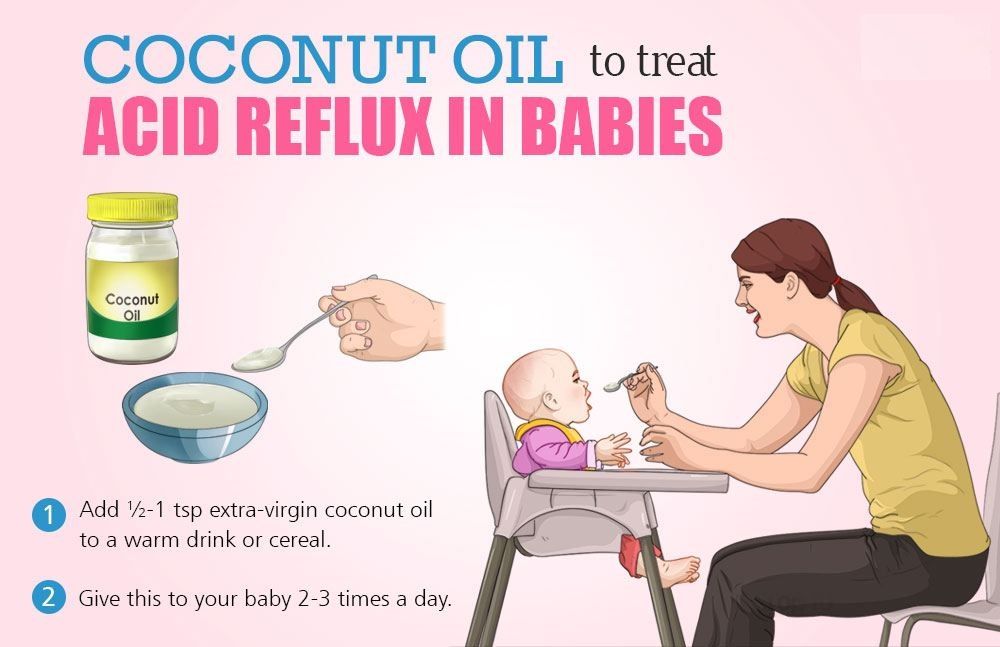
Who can or should drink vegetable milk?
Plant-based milk is a great alternative for vegans, dieters, people with allergies, and those who don't eat animal products for other reasons.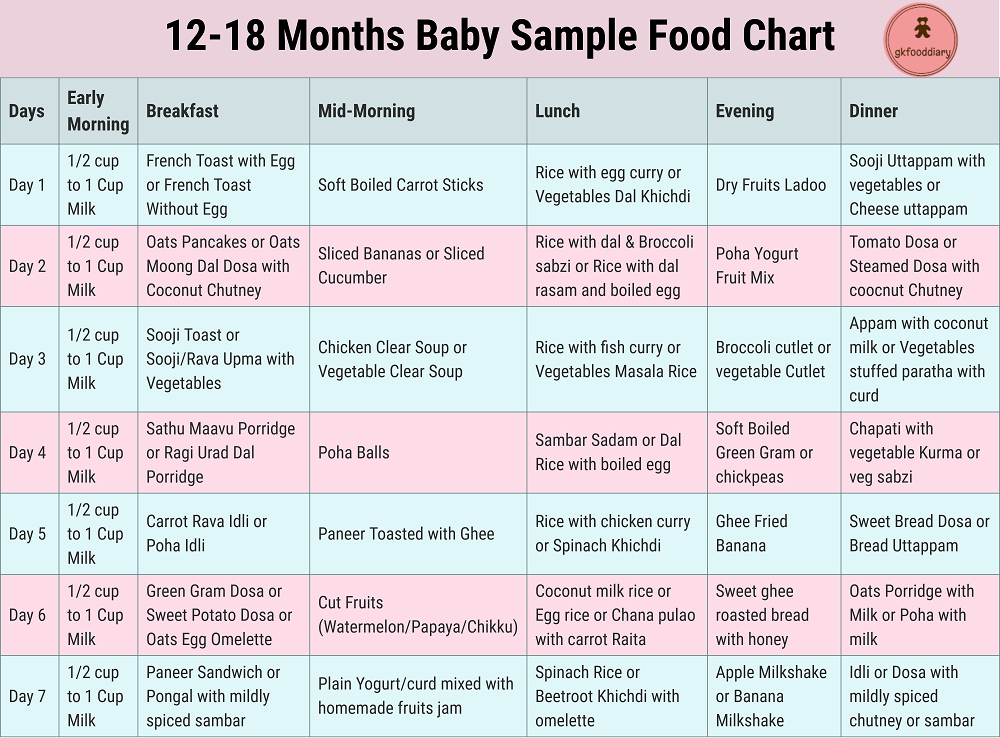 But is it possible to give such milk to children, and if so, at what age? Let's figure it out.
But is it possible to give such milk to children, and if so, at what age? Let's figure it out.
How is plant-based milk produced?
Plant based milk is made from nuts, seeds or cereals. These ingredients are soaked in water and then ground until smooth and filtered. In the manufacture of the composition of vegetable drinks are often enriched with calcium and other trace elements. Nuts and cereals are rich in vitamins, so they are also present in plant-based milk. Some manufacturers add flavor stabilizers, so read labels carefully and choose drinks without many additives whenever possible. nine0025
Is it possible or not?
It is possible, but there are nuances that directly depend on the age of the child. For example, newborns need a natural protein, because the growth and development of the body, as well as the strength of the immune system, depend on it. Vegetable milk, despite the mass of its advantages, will not replace the baby's milk of animal origin, and even more so - breast milk.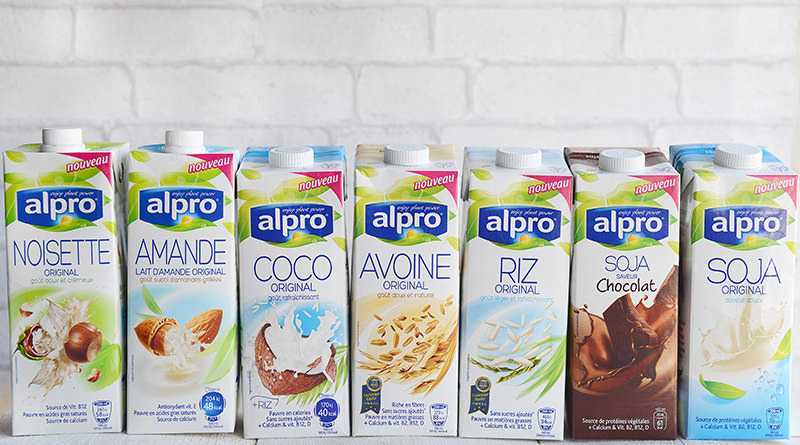 Therefore, even if a child has an allergy to lactose, in no case do not engage in amateur activities and consult with your pediatrician. Most likely, the doctor will prescribe special mixtures for the baby, which in composition will maximally satisfy the child's needs for vitamins, proteins and amino acids. nine0025
Therefore, even if a child has an allergy to lactose, in no case do not engage in amateur activities and consult with your pediatrician. Most likely, the doctor will prescribe special mixtures for the baby, which in composition will maximally satisfy the child's needs for vitamins, proteins and amino acids. nine0025
At what age can plant-based milk be given to children?
Children from the age of 3 can already be given vegetable milk periodically to diversify their diet. However, it is impossible to exclude animal milk completely, unless otherwise recommended by a doctor. Recipes from vegetable milk are varied, and for kids, you can cook cereals or healthy desserts using this drink.
Source: unsplash.com
What kind of vegetable milk should I give my child? nine0003
A big plus of herbal drinks is the variety of flavors. Therefore, by trial and error, you can determine what kind of milk your child likes. Almond, oatmeal, banana - let the baby choose for himself.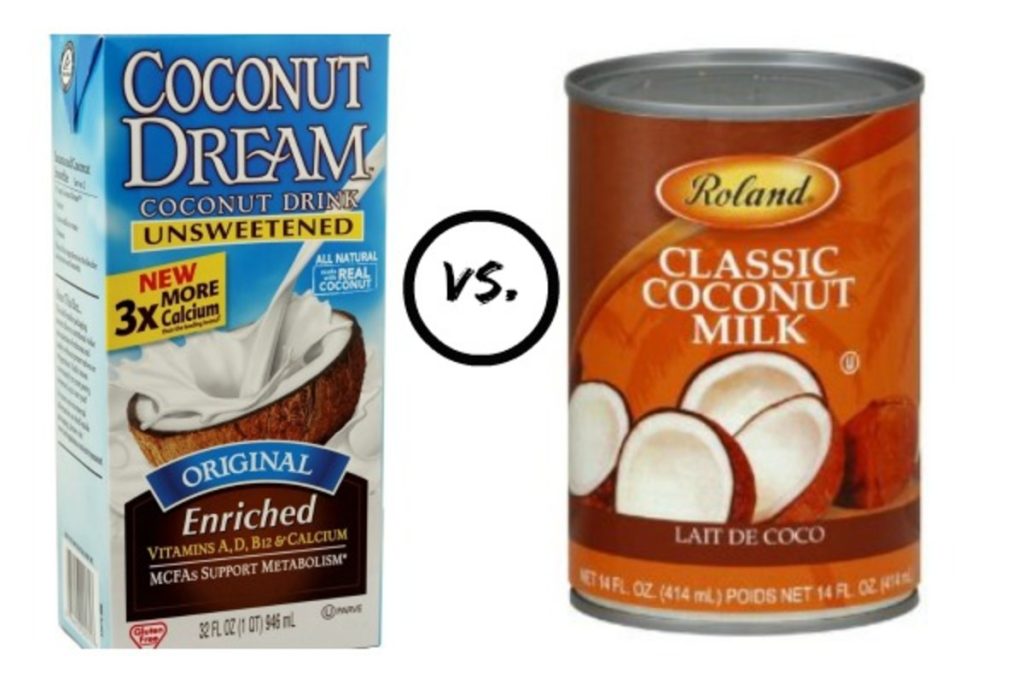
For example, soy milk has the highest protein content of any plant-based drink, but is not rich in calcium and vitamin B12. Soy protein can cause an allergic reaction, so before giving soy milk to an allergic child, it is worth going through an allergy test. nine0025
But before you start giving any plant-based milk, read the etiquette carefully. It is important that the drink is not only tasty, but also healthy: it does not contain sugar and GMOs and is enriched with important trace elements. Velle herbal products meet all these requirements, and also contain beta-glucans, which reduce blood cholesterol levels. And there is more calcium in Velle than in cow's milk!
What can be prepared from vegetable milk for a child? nine0003
Plant based milk can be added to baked goods, casseroles, desserts and cereals. Older children can be given this wholesome food in its pure form or smoothies - for example, in addition to an afternoon snack or for breakfast.
Source: unsplash. com
com
Which drinks are not suitable for children?
Many parents wonder at what age children can have coconut milk and whether children can have oat milk.
• It is better not to give coconut milk to babies: it is low in proteins and carbohydrates. nine0057 • Children who have been diagnosed with diabetes should not eat oat milk because it is high in starch and gluten.
It is also important to remember that if a child has already been diagnosed with a nut allergy, then he should not eat plant foods containing nuts. But for such children, drinks from seeds or cereals are suitable.
Briefly about the main
Plant-based milk is not recommended for children under 3 years of age. After 3 years, you can include plant-based milk dishes in the diet, but before that, you should consult with a pediatrician. It is important to carefully read the composition of the drink and choose milk without GMOs, sugar and other harmful additives. It is better to give preference to foods enriched with calcium and other useful trace elements.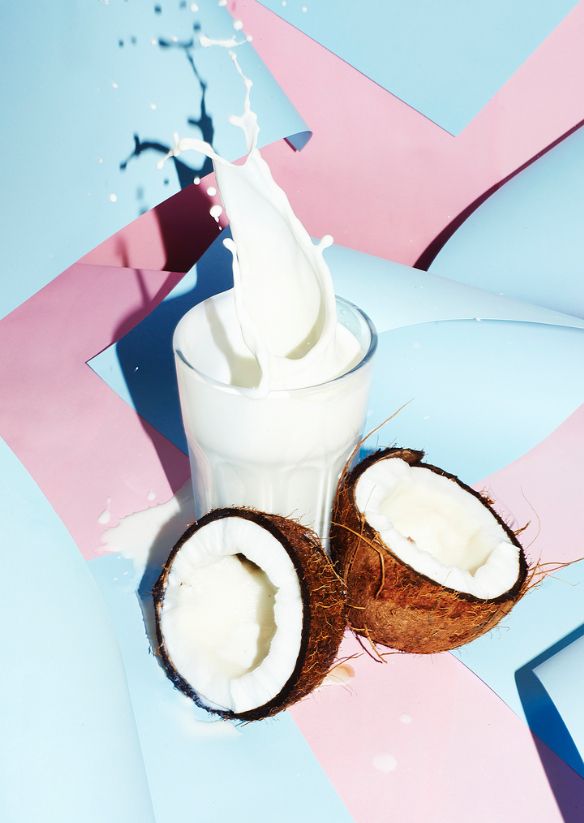 nine0025
nine0025
Published: 08/12/2022
Share on social networks:
You may also be interested: expressive scent. It can be used in a variety of ways – it is eaten fresh, it is used to make fragrant butter, and fragrant and nutritious milk is obtained. Pediatricians advise that coconut be sure to be given to children, as this fruit has a wide range of useful qualities. But before introducing tropical nuts into complementary foods, mothers should consider at what age coconut milk can be given to babies. nine0025
1 Is it possible for children coconut milk and coconut
1.1 Features of the composition
1.2 The benefits of coconut milk for children
1.3 .1.1 Related entries:
Features of the composition
Coconut milk, which can be used by children from an early age, is obtained by mixing the liquid from an exotic nut with its pulp, after which the mixture is crushed with a blender. It consists of:
Nutritionists commentary and many articles about the properties of tropical nuts emphasize that flavored milk can be a great option for a tasty and healthy snack. This product saturates well, provides a long-lasting feeling of satiety and does not lead to an increase in body weight. nine0025
Benefits of coconut milk for children
At what age can coconut milk be given to children? When answering this question, one must take into account that this fruit is famous not only for its delicate taste, but also for its beneficial properties.
Benefits of coconut for children:
Life is great! Milk soul. Coconut milk.(06/07/2016)
Watch this video on YouTube
Coconut milk in baby food strengthens the bone skeleton and teeth, ensures the full formation of muscle tissue. The composition of the exotic fruit does not include sugar (fructose provides a sweet taste), for this reason it can even be given to those suffering from diabetes.
Tropical fruit drink is an excellent substitute for cow's milk if your baby is allergic to the animal proteins it contains. nine0025
When babies can eat coconut
At what age can children try coconut - the introduction of tropical fruit into baby food is best after 2-3 years, when the baby's digestive system is ready for a new product. This nut belongs to exotic products that do not grow in our area, so hurry up with such a treat.
This nut belongs to exotic products that do not grow in our area, so hurry up with such a treat.
Basic rules for eating coconut:
For the first "acquaintance" coconut drink should be diluted with water in equal proportions and give the baby no more than a teaspoon of the drink. In the event that he does not have allergies and digestive disorders, the amount of the product is allowed to be increased to 2 teaspoons twice a week.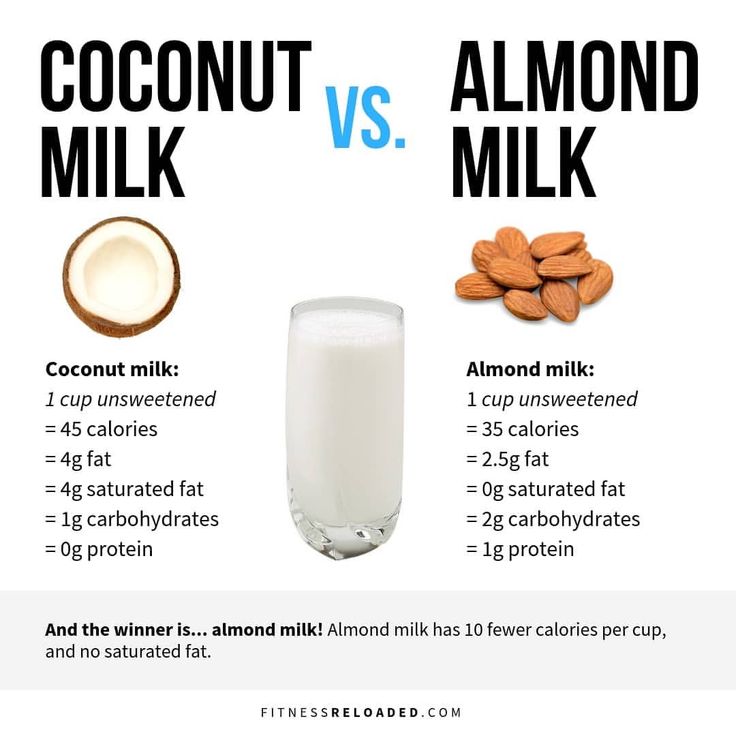 nine0025
nine0025
Possible harm of coconut milk
When deciding how much to diversify a child's diet with coconut milk, one should take into account that an exotic fruit often causes allergies or hypersensitivity. Skin rashes, burning and redness, swelling, nausea, upset stool indicate that coconut should be excluded from the crumbs menu.
The main danger when eating coconut is that it is very difficult to find a high-quality, natural and organic fruit on the market. Many manufacturers stuff fruits with nitrates, preservatives and other chemical additives. They give an attractive appearance to nuts and preservation during long-term transportation, but they are of great harm to children's health. nine0025
Milk from an exotic fruit should not be drunk in case of diseases of the gastrointestinal tract, gallbladder, liver dysfunction, frequent diarrhea.
Coconut milk in the children's menu
Milk can be given to children in its original form or used as an addition to other products. It goes well with oatmeal, rice and other cereals, is added to "airy" cream soups and even meat dishes. A nut drink can be a tasty and nutritious base for making ice cream, smoothies and various desserts. nine0025
It goes well with oatmeal, rice and other cereals, is added to "airy" cream soups and even meat dishes. A nut drink can be a tasty and nutritious base for making ice cream, smoothies and various desserts. nine0025
Oatmeal with coconut milk
BREAKFAST WITH COCONUT MILK / 3 RECIPES - well, very tasty!
Watch this video on YouTube
Mix coconut milk with water in equal proportions, pour into a saucepan and bring to a boil. Add oatmeal and simmer over low heat until cooked through. Season the finished dish with honey and sprinkle with chopped walnut kernels. nine0025
If desired, slices of bananas or other fruits, blueberries, raspberries, strawberries, raisins or dried apricots can be added to the porridge.
Oatmeal Coconut Cookies
Oatmeal Coconut Cookies
Watch this video on YouTube




